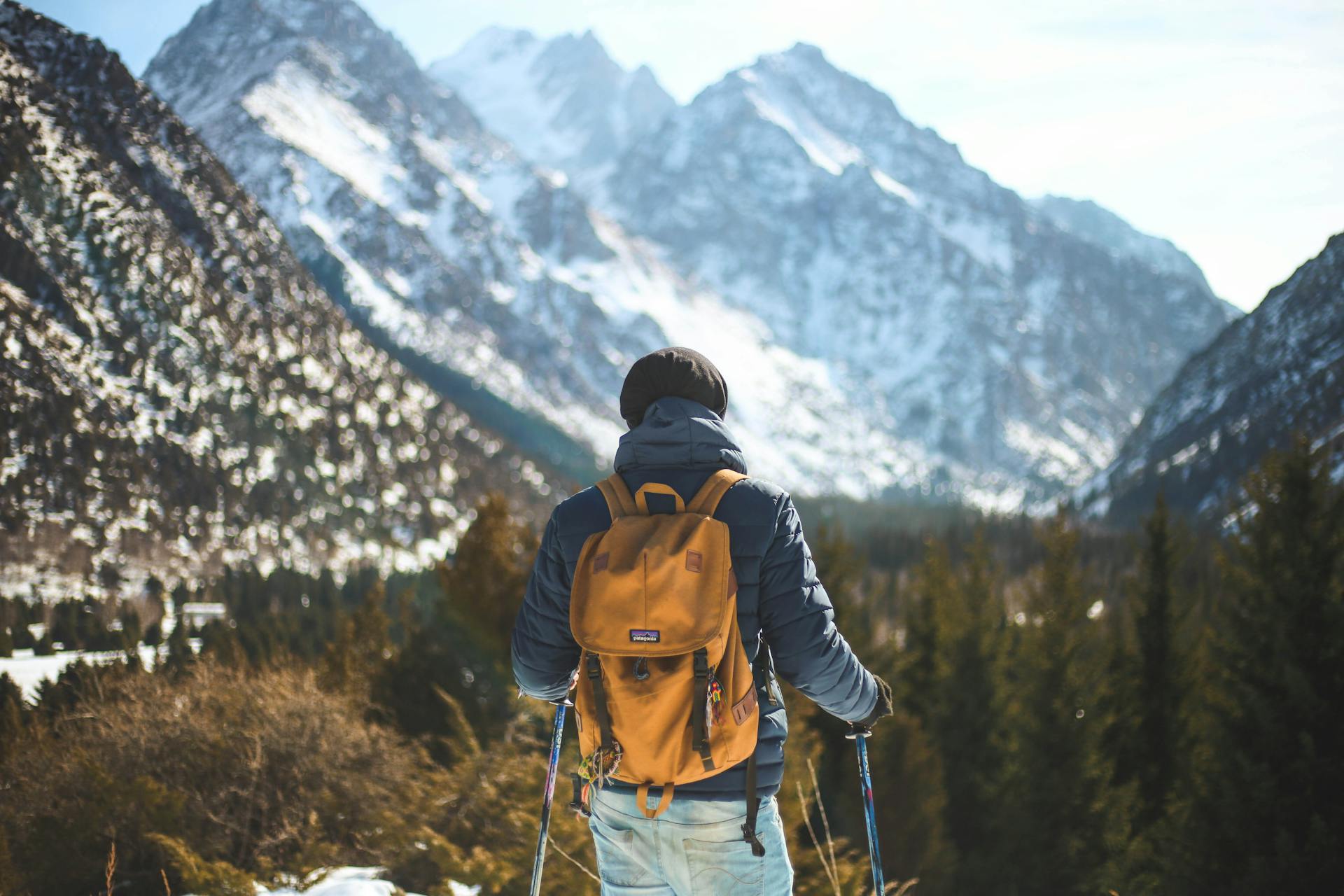Tent camping in the great outdoors offers a sense of freedom, adventure, and connection to nature. However, as exhilarating as it can be, it also presents a number of camping challenges that require preparation, awareness, and the right mindset. One of the most unsettling challenges is the possibility of getting lost while out in the wilderness. Whether you’re on a hike or just exploring nearby trails, it’s easy to lose your bearings, especially when the landscape looks unfamiliar or when visibility is poor.
Getting lost doesn’t have to spell disaster, though. With the right knowledge and tools, you can safely navigate your way back to camp, or at least stay calm until help arrives. This guide will walk you through the essential steps you should take if you find yourself lost while tent camping, helping you stay safe, make smart decisions, and avoid panic.
1. Stay Calm and Assess the Situation
The first and most important step if you find yourself lost is to stay calm. Panic can cloud your judgment and make the situation worse. Take a few deep breaths, slow your heart rate, and assess the situation. Ask yourself:
- How long have you been lost?
- Do you have a sense of the general direction you need to go in?
- Have you passed any recognizable landmarks or trails?
- Do you have a map or compass with you?
Taking stock of your surroundings and your resources will help you make informed decisions moving forward. If you can identify any clear landmarks, such as a river, a mountain peak, or a distinctive tree, use them as a reference point.
2. Stay Put and Signal for Help
If you’ve realized you’re lost and you can’t figure out which direction to go, your best option is often to stay where you are. Moving around in circles or heading off in a random direction can lead you deeper into unfamiliar terrain, making it harder for rescuers to find you. Staying put also prevents you from getting more disoriented.
To signal for help, use the following techniques:
- Whistle: If you have a whistle, blow three short bursts at regular intervals. This is a universal distress signal. Whistling loudly can help rescuers locate you faster.
- Fire: If it’s safe to do so, build a fire. A smoky fire can be seen from miles away, and its smell will carry for long distances. Remember, never leave a fire unattended, and ensure it’s completely extinguished before leaving the area.
- Visual Signals: Use bright-colored clothing, a brightly colored tarp, or a reflective object to attract attention. If you have a flashlight, use it to signal in intervals, especially at night.
3. Map and Compass: Back to Basics
If you’re equipped with a map and compass, now’s the time to put them to good use. Many campers today rely on GPS devices and smartphone apps, but these tools can fail if the battery dies or the signal is weak. A physical map and compass are more reliable in situations where electronic devices can’t help.
- Map Reading: Take out your map and identify any trails or landmarks you’ve seen. Compare them with your surroundings to get a sense of your location. Look for clues in the landscape, such as rivers, hills, or roads, that match your map.
- Using a Compass: A compass is invaluable when trying to orient yourself. Use the map to determine the direction you need to go, and follow that direction with your compass. If you’re lost and disoriented, it’s important to be methodical—traveling in a straight line, rather than wandering aimlessly.
If you don’t have a map or compass, and you can’t get a GPS signal, use the sun to help determine directions. The sun rises in the east and sets in the west, giving you a rough idea of cardinal directions.
4. Follow Water Sources or Trails
If you’re able to identify a trail or water source, following it could lead you to safety. Rivers, streams, and creeks often lead to larger bodies of water, which may be near campgrounds or roads. In many cases, water sources can guide you back to civilization.
- Streams and Rivers: If you’re near a stream or river, consider walking downstream. Water tends to flow toward populated areas, roads, or campsites, which may lead you to safety.
- Hiking Trails: If you’ve found a trail, try to follow it in the direction you think you’ve come from, or if the trail is too unfamiliar, follow it to the nearest recognizable intersection or landmark.
Remember, avoid walking upstream against the current unless you know it leads to your original starting point. Keep in mind that trails and water sources may not always be well-marked, so proceed with caution and always recheck your surroundings.
5. Preserve Your Energy and Water
If you find yourself lost, it’s important to conserve your energy and resources. Avoid walking aimlessly for long periods of time, as this can lead to exhaustion and dehydration. If you have food and water, ration them wisely, especially if you’re not sure how long you’ll be out.
- Stay Hydrated: Water is essential, especially in the heat. If you’re running low on water, look for natural sources such as streams or lakes. If you’re unsure about the water’s safety, try to purify it using a filter or purification tablets, if you have them.
- Food: If you’re stranded, don’t worry too much about food for the first few hours. Your body can handle hunger for a while. However, if you’re going to be out for longer periods, look for edible plants, berries, or insects, but only if you’re confident they’re safe to eat.
6. Build a Shelter
If you’re lost for an extended period and it’s getting dark, it’s crucial to build a shelter. Even if you’re not far from your campsite, you need to stay warm and dry through the night. Building a shelter with limited resources is an essential skill for all campers, and it’s especially important when lost.
- Find Shelter Materials: Look for natural materials such as branches, large leaves, pine needles, or even your tent’s rain fly if you can’t set it up in the usual manner.
- Create a Lean-To or A-Frame Shelter: These shelters are simple to build and offer protection from the elements. Stack branches against a fallen tree or lean them against another structure to create a roof. Layer leaves, pine boughs, or grass inside for added insulation.
Make sure your shelter is well-ventilated, and if the weather is cold, cover yourself with a thermal blanket or any extra clothing you have.
7. Stay Positive and Wait for Rescue
The most important thing when you’re lost is to stay calm and patient. The longer you panic, the more energy you waste. If you’re still able to communicate with others—whether through a whistle, flashlight signals, or phone—do so periodically. If you’re in an area that’s often frequented by hikers or campers, rescue teams are likely on their way.
Be sure to communicate your location to rescuers once they arrive, and stay put. If you’re in a situation where you have to wait overnight, make sure your shelter is secure and your warmth is maintained.
8. Preventing Getting Lost in the Future
While it’s important to know what to do if you get lost, it’s just as crucial to take steps to avoid it in the first place. Here are a few preventive tips to reduce the risk of getting lost on your camping trips:
- Plan Your Route: Always let someone know your planned route, estimated return time, and where you’ll be camping. This is vital for rescuers in case you do get lost.
- Carry a Map and Compass: Always bring a physical map and compass, even if you’re using a GPS device.
- Stay on Marked Trails: Stick to marked trails as much as possible, and always know where the nearest exit or trailhead is.
- Know the Area: Familiarize yourself with the terrain and potential hazards of the area you’re camping in before heading out.
Conclusion
Getting lost while tent camping can be a frightening experience, but with the right mindset and preparation, it’s a challenge that can be overcome. By staying calm, signaling for help, navigating using basic tools, and conserving resources, you can increase your chances of finding your way back to safety. With the knowledge provided in this guide, you’ll be better equipped to handle unexpected situations, ensuring that your camping experience remains a positive and enjoyable one. Remember, the key to surviving any outdoor challenge is staying prepared, staying calm, and using your resources wisely.

